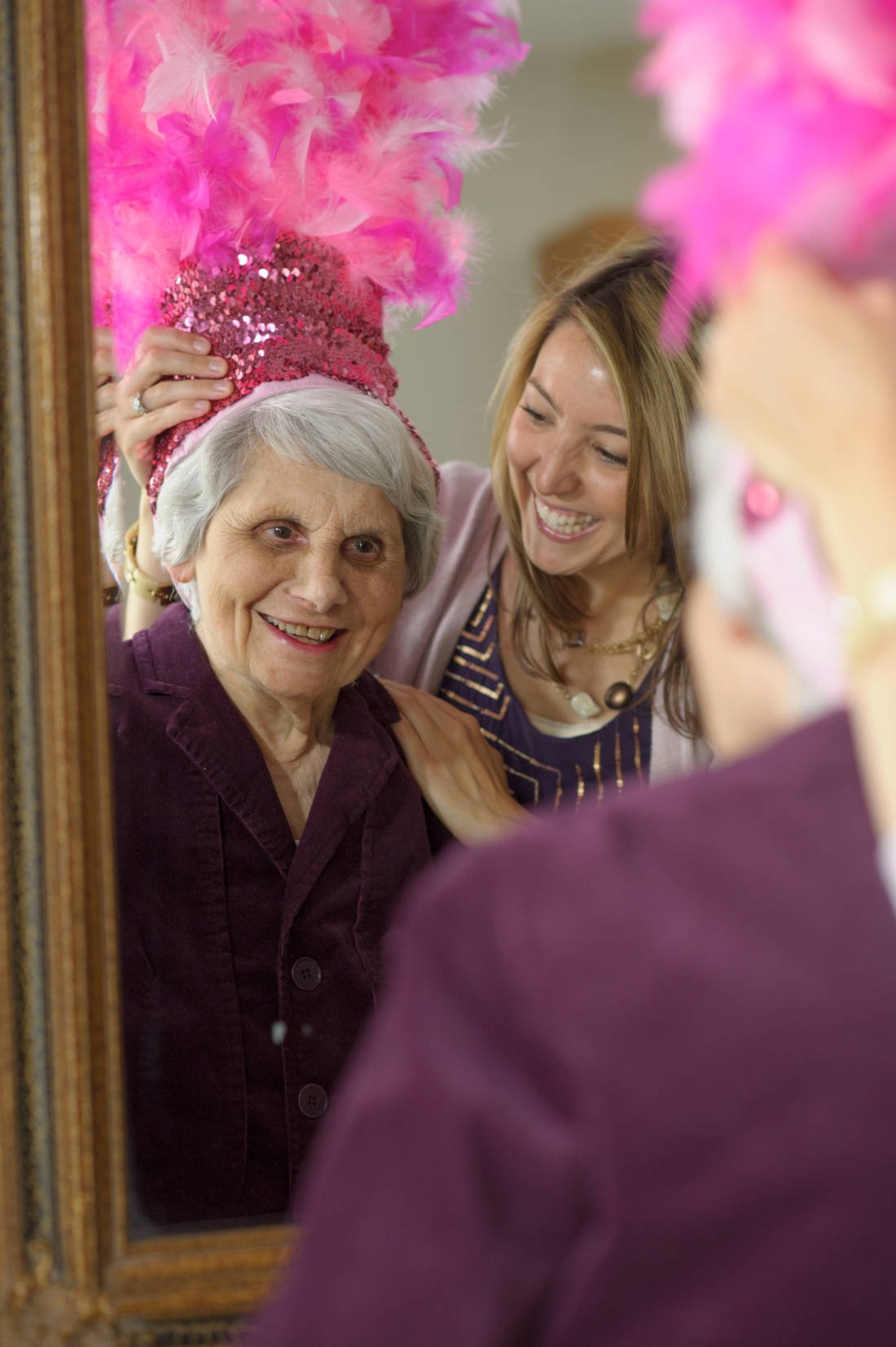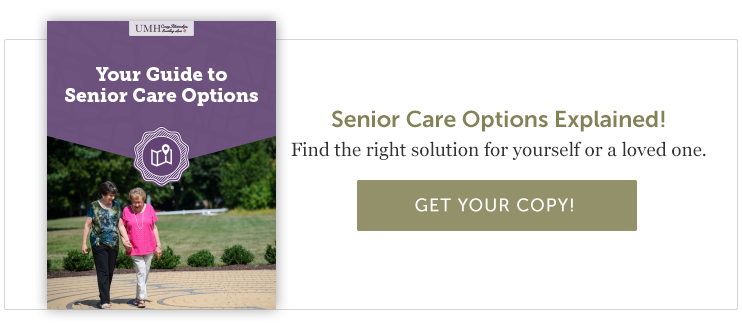Self-Care for the Caregiver: Why and How to Prioritize Your Own Well-Being
Independent Senior Living | senior living nutrition | senior living homes | Aging & Caregiving | dependent senior living
Caregivers are called upon to do so much, continually giving of themselves in any number of ways. Many are sandwiched between the needs of their elderly, dependent parents and the responsibilities of tending to their children who haven’t yet left the nest. In the midst of balancing this complex family life with a potential career, there’s often very little time and energy devoted to caring for themselves.
But when the caregiver neglects their own needs, they risk some highly detrimental outcomes, not the least of which is physical, mental and emotional burnout. According to the most recent Caregiving in the U.S. study, conducted by the National Alliance for Caregiving (NAC) and the AARP Public Policy Institute:
-
One in five caregivers reports a high level of physical strain resulting from caregiving
-
Two in five consider their caregiving situation to be emotionally stressful
-
The longer a caregiver has been providing care, the more likely they are to report fair or poor health
In addition, the Family Caregiver Alliance says that family caregivers of any age are less likely than non-caregivers to practice preventive healthcare and self-care behavior. Caregivers report ensuing problems from this personal neglect, including:
-
Sleep deprivation
-
Poor eating habits
-
Failure to exercise
-
Failure to stay in bed when ill
-
Postponement of or failure to make medical appointments for themselves
-
Increased risk for depression
-
Increased risk for excessive use of alcohol, tobacco and other drugs
8 Critical Self-Care Strategies for the Caregiver
To support you in learning the most important and valuable ways to care for yourself, here are some helpful strategies provided by the Mayo Clinic for dealing with caregiver stress.
-
Accept help. Be prepared with a list of ways that others can help you, and let the helper choose what he or she would like to do. For instance, a friend may offer to take the person you care for on a walk a couple of times a week. Or a friend or family member may be able to run an errand, pick up your groceries or cook for you.
-
Focus on what you are able to provide. It's normal to feel guilty sometimes, but understand that no one is a “perfect” caregiver. Believe that you are doing the best you can and making the best decisions you can at any given time.
-
Set realistic goals. Break large tasks into smaller steps that you can do one at a time. Prioritize, make lists and establish a daily routine. Begin to say no to requests that are draining, such as hosting holiday meals.
-
Get connected. Find out about caregiving resources in your community. Many communities have classes specifically about the disease your loved one is facing. Caregiving services such as transportation, meal delivery or housekeeping may be available.
-
Join a support group. A support group can provide validation and encouragement, as well as problem-solving strategies for difficult situations. People in support groups understand what you may be going through. A support group can also be a good place to create meaningful friendships.
-
Seek social support. Make an effort to stay well-connected with family and friends who can offer nonjudgmental emotional support. Set aside time each week for connecting, even if it's just a walk with a friend.
-
Set personal health goals. For example, set goals to establish a good sleep routine, find time to be physically active on most days of the week, eat a healthy diet and drink plenty of water. Many caregivers have issues with sleeping. Not getting quality sleep over a long period of time can cause health issues. If you have trouble getting a good night's sleep, talk to your doctor.
-
See your doctor. Get recommended vaccinations and screenings. Make sure to tell your doctor that you're a caregiver. Don't hesitate to mention any concerns or symptoms you have.
Options for Taking a Necessary Break
The average person, regardless of what caregiving needs may arise for their family, is NOT a professional caregiver. So as you jump in to care for an older relative, it’s easy for these demands (that you’re probably not professionally equipped to manage) to begin taking a toll on your overall health and wellbeing. Eventually, what you may really need is a significant break.
It is perfectly normal to need a “vacation” from caregiving. In fact, taking one is likely essential to maintaining your own health so you can continue to care for the health and needs of your loved ones. Don’t feel guilty about wanting to find options for alleviating some of this highly consuming stress from your life.
There are several options to consider as you formulate a plan for arranging this much-needed break. Here are a few to think about:
- Home Care: This can be a viable option for caregivers who need to leave the home for work, school or other obligations. In-home services range from medical and personal care to household assistance and companionship.
- Adult Day Care: Does your loved one have the ability to leave the home? If so, you may want to look into an adult daycare community, which is designed to provide supervision, nutrition, socialization, rehabilitation and transportation services.
- Respite Care: With this type of arrangement, your loved one enrolls in a short stay at an assisted living community. In addition to offering you, the caregiver, vital time to refresh and take a break, respite care can introduce and acclimate your loved one to the experience of assisted living, a valuable benefit if this type of long-term care solution may be in their future.
- Assisted Living: An assisted living community can set your loved one up to receive proper attention to their medical, personal, household and transportation needs. Families often choose this option when it becomes apparent that their loved one can no longer live at home safely and comfortably. It’s an ideal opportunity for them to make a new home in a warm, familiar environment, surrounded by people who can effectively meet their health, everyday living and socialization needs.
- Rehab: A short or long-term rehab stay may be the best option if your loved one will be recovering from an injury, surgery or prolonged illness, or has care needs that require around-the-clock supervision. Rehabilitation centers offer intensive medical intervention, including monitored nutrition, medication administration, physical therapy and personal care.
The fact is no benefit or positive outcome results from becoming an overstressed or resentful caregiver, and needing a break from the job you’ve accepted does not make you a selfish person. If you don’t take good care of your own physical, mental and emotional health, you won’t have what’s needed to take good care of your loved ones.
For even more tips on how to thrive as a caregiver, download your free copy of The Essential Caregiver's Guide.
About Marissa Salvesen
My journey into the world of senior living began when I started working for United Methodist Homes in 2010. Starting as an Activities Director at one of our award-winning assisted and independent living communities and then transitioning to Marketing and Promotions Manager for UMH, I now work as the Manager of Mission Development, fostering the Mission and Values of our organization. I love sharing stories about the many ways we build meaningful relationships and enrich the lives of those we serve, and am proud to be part of building UMH’s 140-year legacy of caring. Wondering what makes our communities such special places to live and work? Connect with me and find out!

Our Blog is a 2016 Platinum Generations Award Winner! The Generations Award is an annual international competition for excellence in senior marketing recognizing professionals who have communicated to the 50+ Mature Markets.




